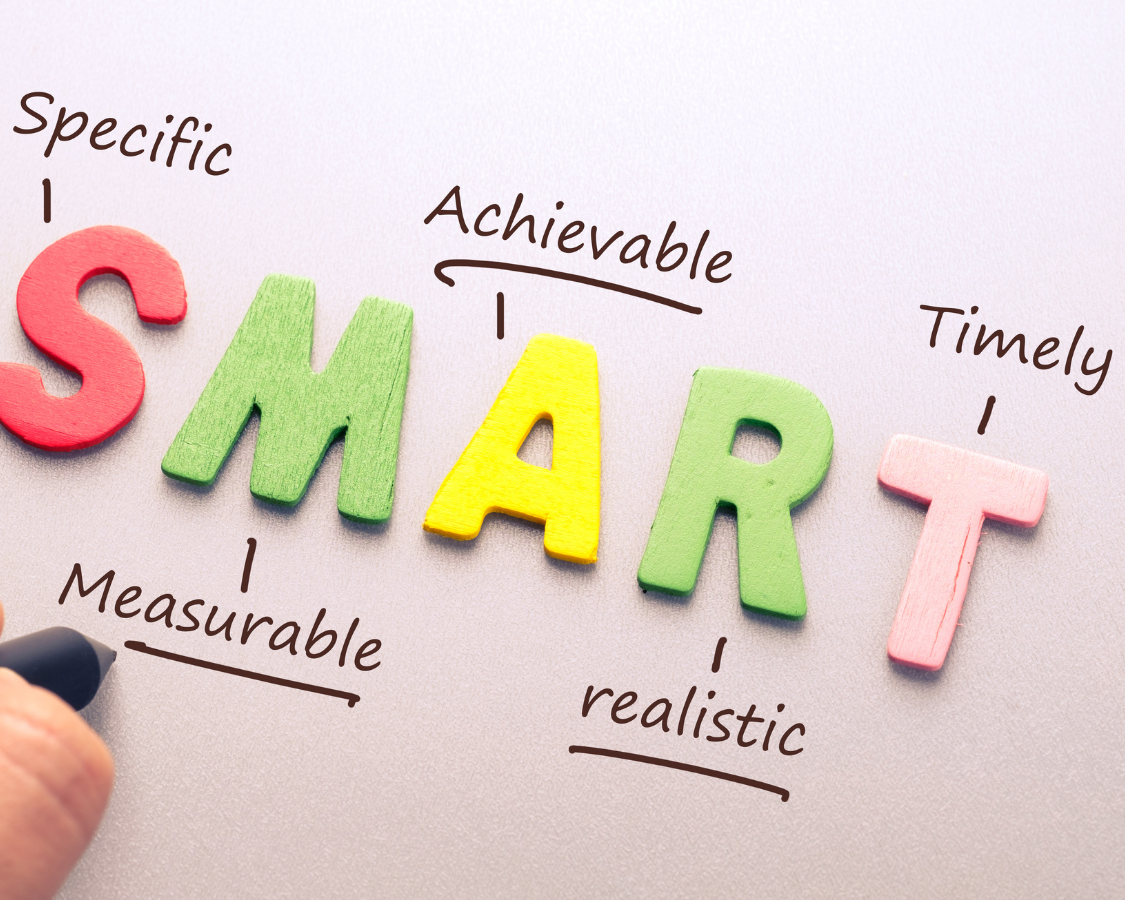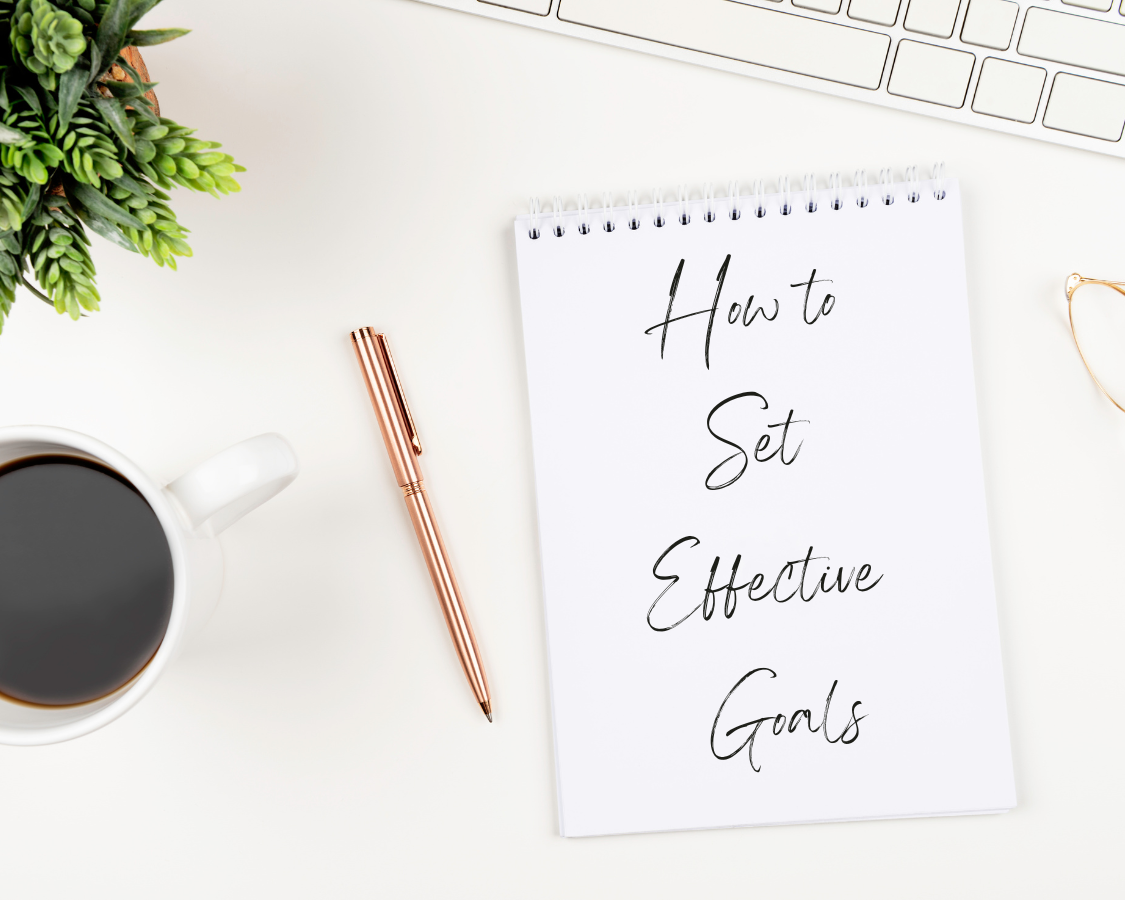Goal Setting Coaching: How to Set Effective Goals
If you're struggling to set effective goals you might be in need of some goal setting coaching. Here are 5 steps to help you...
Beth's 1 Week Meal Plan

Why do you need to set personal goals? You just want to get a bit fitter, right? Move a bit more at home?
That’s all very well, and good on you, but having a reason for doing your workouts, something bigger, something you can work towards is the best way to keep you going when you’re getting a bit fed up.
On those days when your kids are being hard work and you haven’t slept well for a few days.
Having something outside of family life, something you’re looking forward to, something that you’re working towards, well...it can be sanity saving.
It can be great for your mental health.
A great reminder that you’re more than just mama, caretaker, put everyone else’s needs in front of your own er.
You’re still the person who likes a big challenge.
You’re still the person who loves the feeling of attaining something.
You’re still the person who drives and pushes to get what she wants.
You’re still you.
So, let’s forget the ‘just want to move a bit more’ general goal, and let’s set the right goals. A dream goal worthy of you.
How do you do it?
Here are five tips to get you started…
1. Goal Setting Coaching: Be SMART

SMART is a goal setting process. It helps you stay away from those vague ‘I want to get fitter’, ‘I want to be healthier’, ‘I want to lose weight’ type goals and help you get right down to the nitty gritty.
It helps you focus on specific areas you want to improve in your whole life, about your body.
It helps you set clear goals, realistic goals, measurable goals, that you can achieve.
So when you’re goal setting, the first thing to do is get SMART.
But, what does smart goals mean?
S = Specific Goal. You have to be specific about what you want to achieve. If you’re vague, not really clear then how are you going to know when you’re there? How are you going to know what you’re working towards?
M = Measurable Goals. You have to be able to measure what you want to achieve. This really starts to nail down the specific. Again, how are you going to know you’re there if you can’t measure.
A = Achievable Goals. You have to be able to achieve your goals. Whilst it’s good that they’re challenging goals, setting something that you can easily reach wouldn’t really motivate you, on the flip side, neither will setting a goal that you can never really reach.
R = Relevant Goals. Your goals have to be relevant. To you. You have to want to achieve them or what’s the point.
T = Time-focused Goals. ‘A goals without a deadline is just a wish’ When do you want to achieve your goals by? I think it’s important to set a timescale, a timeline for your goals, but a word of caution, don’t get too disheartened if you don’t reach it. Often we find other goals that were actually more important to us along the way.
2. Goal Setting Coaching: Long-Term and Short-Term

Ok, you’ve got your SMART goal.
It ticks all of the boxes. It’s specific, measurable, achievable, relevant and time-focused.
Yay you.
That’s your long-term goals sorted and they are great starting points. But, they’re just starting points, what now?
Think of this goal as your big goal, your long-term goal. You’re destination. Where you’re going to be when you get there.
Now, you need to know how you’re going to get there.
You do that by setting short-term goals. Little goals you reach on your journey.
These are known as process goals, or behavior goals. They are smaller goals you reach on a weekly basis that help you keep on track.
They’re really important, they not only keep you motivated, they help you to see whether you’re on the right track on not.
If you keep missing your weekly goals then your plan will need to be changed.
But you’re weekly ‘check-ins’ will give you plenty of warning. Imagine working towards your goal, say it’s to lose weight, you get three months down the line and nothing has changed.
By setting these smaller goals you’ll have plenty of warning and chance to change your plan.
3. Goal Setting Coaching: Don’t Forget the Emotion
The one thing I find about smart goals is that they can lack a bit of emotion.
They focus on the numbers. Ok, yours might not have numbers but hopefully you know what I mean. They focus on the specifics. The facts. The hard nose realities of what you want to achieve.
But, on a cold, dark morning are those hard nose realities going to drag you out of bed for that run you had planned on doing?
Are they going to motivate you to get into the kitchen to cook dinner and prepare food for tomorrow when you’ve had a hard day and your toddler is screaming because they can’t watch any more television?
I know they wouldn’t for me.
But, the emotion behind those specifics, your main reasons for doing what you’re doing, your ‘why’, That will help.
Focusing on making a meaningful change in your life, starting to create a happy life, that will help you on those cold, dark mornings.
So, don’t just focus on the numbers, the facts, the realities. Focus on why you want to do it.
4. Goal Setting Coaching: What Do You Need?
In any effective goal setting session you also need to consider what you’re going to need to get you where you want to be.
This is really a part of making your goals realistic.
Let’s look at an example….let’s say you want to get an athletic looking body, you know what I mean, no wobbly bits, defined arms, defined abs, nicely toned legs. Let’s say that’s what you’re working towards.
To get that look you’re going to need to have a very specific calorie controlled diet and you’re going to need to do well planned and balanced workouts roughly 4-5 times a week. And they’ll last about an hour each.
So, do you have the time, and the equipment you’re going to need to do this? Do you have the support system in place to get this done?
Do you have the time to weigh all of the ingredients for every meal?
Do you have the time to go to the gym for 4 to 5 hours every week?
Do you the equipment you need to do the workouts at home?
Do you have access to a personal trainer and a nutrition coach to plan your workouts and your meals?
Do you have the knowledge to plan all of this out yourself?
Work out what you’re going to need to get you to your goal.
5. Goal Setting Coaching: Get Some Help
If you’re still struggling setting effective goals, get some help.
Whether that’s from a life coach, personal development coach, or me, don’t be afraid to ask for help.
There are lots of qualified people out there who would be a great help to you. Whether you want to learn new skills, make a big life change, or lead a healthier lifestyle.
Remember asking for help is not a weakness.
Goal Setting Coaching: Goals That Are Nothing to do With Weight Loss
Outcome Goals
Weight loss is an example of an outcome goal. It focuses on the end result. The desired end of the process.
What else could you choose as an outcome goal?
Maybe to run in a race? 5K, 10k or even a marathon.
Or, what about compete in a competition...strong-woman, body building.
They are all examples of outcomes. Your goal achievement is focused on a fixed outcome.
Process Goals
Process goals, or behavior goals, focus on changing old habits.
You can set a process goal as a way of reaching an outcome goal.
For example….I’m going to workout on a regular basis, 3 times a week for an hour each time and/or I’m going to eat predominantly home cooked food and reduce fast food to once a month.
These goals will help you set good habits. Yes, they will probably result in weight loss but that’s not the main goal. It’s a happy consequence but not the main goal.
The main goal is to, essentially, live a healthier lifestyle.
Performance Goals
Performance goals, also known as approach goals, are when you focus on gaining a higher performance rather than a specific outcome.
For example, if you’re already a runner you might want to reduce your 5k or 10k time. If you already strength train you might want to set a goal of doing an unassisted pull up. Or, deadlifting your bodyweight.
If you’ve been bodyweight training, or doing yoga for a while maybe you want to do back bridges by doing a back walkover.
Goal Setting Coaching: Go Set Your Goals

There’s not doubt that successful people set goals. Clear, specific, achievable goals.
As goal-setting tools go, SMART is undoubtedly a great way of narrowing down those goals, but it’s a starting point. You need to go further.
You also need a clear picture of your why, the emotion behind the numbers. And an action plan of how you’re going to get there.
Do those in addition to SMART goals and you’ll be changing your life in no time.
You Are Here
- Home
- Home Workout Tips
- Goal Setting Coaching








